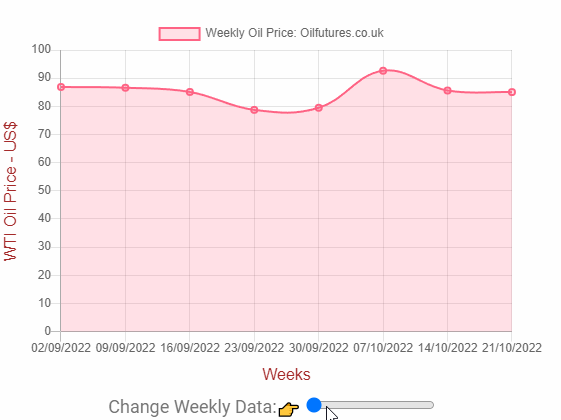Apart from incurring the wrath of the US, the OPEC+ does not seem to have achieved any substantial financial benefit from its much-trumpeted production cut announced on October 5, in response to the falling oil prices for a few weeks before it.
Although the production cut grabbed the headlines with a scary figure of 2 million barrels a day, the actual amount, according to seasoned OPEC watchers, could be somewhere in the range of 1 - 2 million bpd.
It is true that before the announcement was made, the price of crude oil had been falling faster than analysts' predictions, while making mockery of certain investment bankers, who saw price hitting above $200 a barrel in the fall!
The fall in price, however, has since been modest and it is difficult to associate it with the announcement of the OPEC+ in October.
On one hand, there are plenty of concerns on other fronts: the major global economies see their growth forecasts lowered; inflation is wreaking havoc across the globe; the frequent lockdowns in China in response to the random outbreaks of Covid-19 restrict the movement of people in the world's top oil importer; the war in Ukraine can, potentially, take a turn for the worse at any time, to name, but a few.
On the other hand, the US has not stopped releasing its stocks from the SPR, Strategic Petroleum Reserve, despite its initial plan to stop it in September. On the contrary, the US wants to continue to release it beyond December, despite the SPR being at a significantly low level.
Having been fully aware of the impact on the post-pandemic world by production cuts, the OPEC+ went ahead with it defying the global concerns.
Since the oil prices are still relatively low, the producers did not benefit from the production cuts.
In this context, having failed to achieve its goal, the OPEC+ will be forced to look for other measures in order to boost the oil prices; as far as the cartel is concerned, however, the room for manoeuvre is getting smaller by every passing day.
A serious rift, for instance, has already developed with the US and the de facto leader of the OPEC+, Saudi Arabia, over the move. It is not in the interest of the Kingdom to take any step that could potentially widen the rift, given its uneasy relationship with the regional foe, Iran.
Thanks to a US-brokered ceasefire deal between the Houthi rebels and the Arab coalition, there is relative calm prevailing in the region, in stark contrast to what was happening at the beginning of the year, when the Kingdom had been subjected to explosive-laden drone attacks almost on the daily basis.
Although the ceasefire is still holding, it may collapse at any time, leaving the Kingdom back at the mercy of the anti-missile defense systems provided by the US. Since the relations between Saudi Arabia and Iran, the main backers of the Houthis, have soured again due to the ongoing protests in Iran, the development is hardly a catalyst for the ceasefire being held in its current form.
In short, the Saudis need the US for its existence: For instance, President Trump, when in office, famously said the the Kingdom would not exist more than two weeks without the US military support!
The falling natural gas prices and relatively warm temperatures in Europe, meanwhile, are not boosting the consumption of oil as feared in the latter part of summer. This development is definitely frustrating the OPEC+ policymakers, when they want to make strategic moves to reverse the fall in oil prices.
With less than 2 weeks to go before the US midterm elections, the Biden administration is using what it calls, 'every tool' at its disposal to keep the price of fuels low - for obvious reasons.
If the administration fails to achieve its goal at the elections, the US will lose no time in identifying the scapegoats for the loss - and respond in kind.
In this context, OPEC+ has been forced to walk a tight rope when it comes to the interests of its own members. The US has already belittled the major contributions announced by two of its major members for Ukraine in giving the latter millions of dollars.
Anthony Blinken, the US Secretary of State, did not mince his words, when he said on Wednesday that Saudi Arabia and the UAE cannot compensate for oil production cuts by helping Ukraine.








